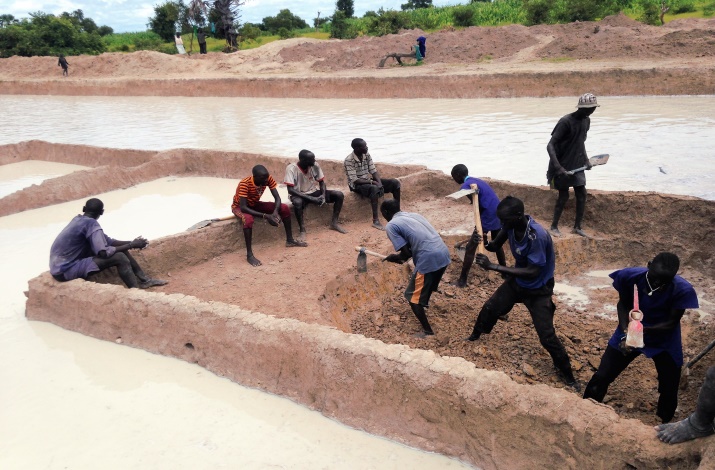
South Sudan is the world’s newest country that continues to face unprecedented levels of food insecurity, with the June IPC report approximating slightly over 6 million individuals to be food insecure. The country continues to face significant displacement of people, and quick depletion of livelihoods and natural resources. According to South Sudan National Programmes of Action (NAPA), the country has not been spared by intense and frequent climatic disasters including drought and floods. The country is experiencing substantially warmer and drier weather, and this combination has resulted in more droughts. Rainfall has become more erratic, which has in turn increased the frequency and severity of floods.
Challenging traditional norms towards a transformative agenda
As the world celebrates the International Day for Disaster Risk Reduction, beneficiaries of ACTED’s project funded by DfID through BRACED South Sudan, celebrate the benefits of disaster risk reduction activities which are improving their daily lives. The BRACED project has targeted the most vulnerable rural populations by investing in anticipatory, adaptive, and adoptive capacities of the community for example the construction of dykes in flood mitigation. Learning and skill development has been enhanced through the Agro-Pastoral Field School (APFS) model which engages farmers and livestock keepers in modern farming and livestock husbandry techniques. Within the 3rd year of project implementation, beneficiaries have learned a number of DRR principles and can relate them to traditional proverbs from their very own communities. For instance, Lou, a 38 year old male farmer, father of 4 boys and 3 girls, and member of an APFS group encourages the rest of the members to learn to anticipate drought and floods by posing the proverb, “If I slap you today while you don’t know I’m coming, will you let me slap you tomorrow when you know I’m there?”

Embracing change collectively and reaping the benefits collectively
Lou is one of approximately 540 APFS members who have benefitted from the BRACED project in Tonj South. With a big smile on his face Lou says, “Not only have I employed ox-plough services to till more land, but I have also received improved sorghum variety that matures faster. Hence I do not have to worry about delayed harvest, or short rainy seasons.” Through participatory risk assessments, Tonj South communities, have collectively reaped the benefits of engaging in participatory disaster risk mapping and planning. Through the formation of Community Resilience Planning Committees, 27 villages in the payams of Aguka, Manyagok and Tonj have established their inclusive contingency plans to better prevent and respond to crises. People of Tonj’s sayong are no longer associated with utterances such as, “we hear through our mouth, not through our ears,” an indication of over- reliance on aid.
We are blessed with forests, land, and other good resources that we are expected to utilize and manage sustainably for our future and that of our children.
Feeling and enjoying the ripple effects of disaster preparedness
Through a Cash for Assets sub-project under BRACED, implemented during the 2017 lean season, about 3.500 households have benefitted from cash transfers and essential communal assets such as dykes and water ponds. The cash transfers have not only improved their purchasing power for food commodities, but also enabled them to continue saving and repaying their loans borrowed from Village Loans and Saving Association groups. In addition, the dykes have been vital in preventing flooding of homes and farms, have harbored fish due to accumulated water that leads to breeding of fish, and prevented the seasonal displacement of the population.